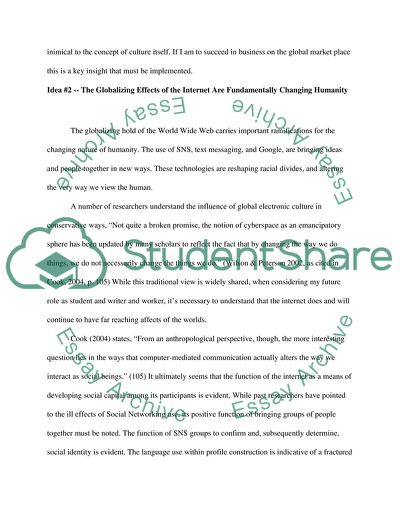Cite this document
(Negotiation Between Local and Global Discourse Assignment, n.d.)
Negotiation Between Local and Global Discourse Assignment. Retrieved from https://studentshare.org/culture/1732712-communication-writing-and-professional-practice
Negotiation Between Local and Global Discourse Assignment. Retrieved from https://studentshare.org/culture/1732712-communication-writing-and-professional-practice
(Negotiation Between Local and Global Discourse Assignment)
Negotiation Between Local and Global Discourse Assignment. https://studentshare.org/culture/1732712-communication-writing-and-professional-practice.
Negotiation Between Local and Global Discourse Assignment. https://studentshare.org/culture/1732712-communication-writing-and-professional-practice.
“Negotiation Between Local and Global Discourse Assignment”, n.d. https://studentshare.org/culture/1732712-communication-writing-and-professional-practice.


